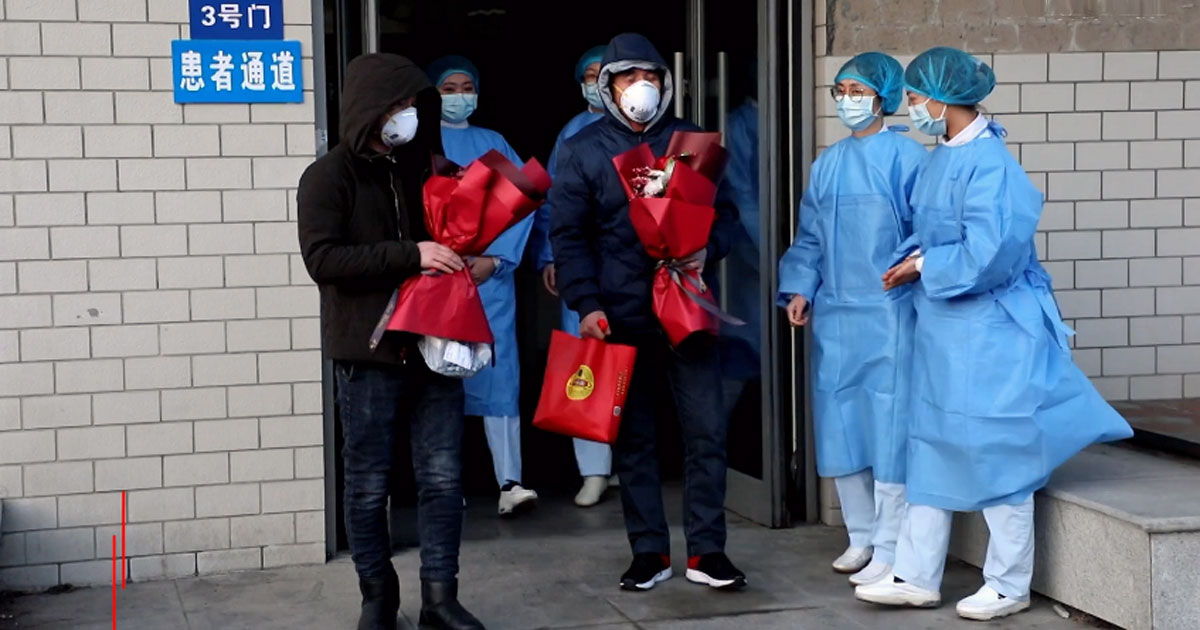After some discharged patients in China again tested positive for Covid-19, Wuhan authorities on Feb. 22 introduced a 14-day mandatory quarantine for those who recovered.
Beginning Saturday, all patients who had recovered and been discharged are to be sent for two weeks of quarantine and medical observation at designated places, according to South China Morning Post.
The announcement was made by the city’s coronavirus treatment and control command centre on Weibo.
Some who recovered still had traces of virus
The new quarantine arrangements kicked in after it was found that recovered patients may still carry the virus and be contagious.
A woman in Changde, a city in Hunan province in central China, tested positive on Feb. 9, five days after she was released from quarantine at a local hospital having tested negative in two previous laboratory tests.
A patient initially discharged on Feb. 10 in the southwestern city of Chengdu, was readmitted to hospital nine days later when tested positive again during a check-up.
As recent as Thursday, Feb. 20, a doctor in Hubei said there had been cases in which patients tested positive after they had seemingly recovered.
The doctor was quoted as saying by Southern People Weekly magazine: “Where do you put those patients? You cannot send them home, because they might infect others, but you cannot put them in hospital because resources are stretched.”
“This is dangerous,” he said.
A Chinese Centre for Disease Control and Prevention researcher, then told state broadcaster CCTV on Friday, Feb. 23 that a wider pool of people should be monitored, as there are those who have had close contact with patients who had been contagious two days before the onset of their own illness.
It was then reported on Saturday in South Metropolitan Daily that the coronavirus was found in stool samples from a small number of discharged patients in the southern city of Guangzhou.
But relapse is not all certain
However, the head of the infectious diseases department in a Guangzhou hospital has also said it is not yet certain whether the viruses or viral gene fragments in the discharged patients are infectious.
Compounding the complications of categorising these cases as relapses is the fact that CAT scans have shown that the discharged patients’ lung inflammation was receding -- which meant that those who were getting better were showing signs of being healthy again.
In China, patients are able to be discharged if they meet four criteria.
- body temperature becoming normal for more than three days;
- respiratory symptoms improving significantly;
- chest CAT imaging showing significant improvement in the lungs and
- negative results in two nucleic acid tests at least one day apart.
Wuhan's plight
Wuhan, the capital, and the rest of Hubei province, have continued to account for the vast majority of confirmed coronavirus cases in mainland China.
About 77,000 have been infected and more than 2,400 have died in the province.
Top photo via Xinhua
If you like what you read, follow us on Facebook, Instagram, Twitter and Telegram to get the latest updates.
